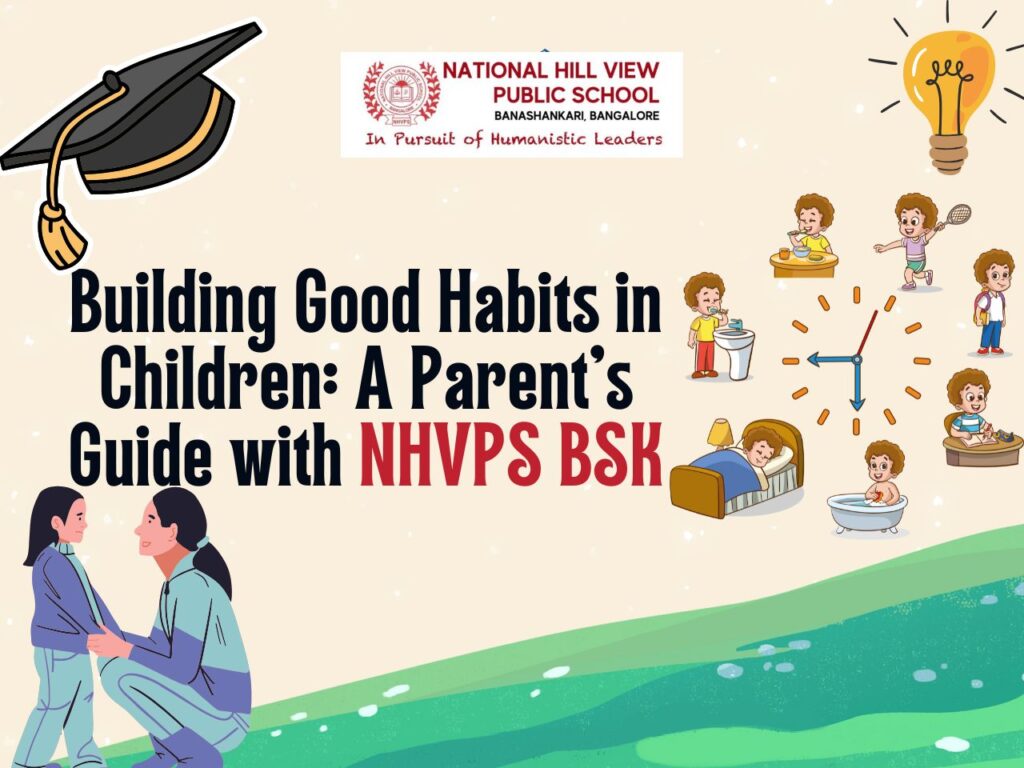Why Building Good Habits Early Matters More Than You Think
As parents, especially mothers who juggle multiple roles daily, we all want our children to grow into responsible, confident, and happy adults. But this journey starts much earlier—with building good habits in childhood.
At NHVPS BSK, we believe that habits formed in early years shape a child’s personality and future success. This blog will help you understand how habits form, why they matter, and how you can nurture positive behaviors in your child every day.
What Are Habits and Why Do They Matter in Childhood?
Habits are automatic behaviors or routines learned through repetition. When children develop positive habits, they:
- Manage time better
- Become more disciplined
- Build emotional resilience
- Improve social skills
- Increase their academic success
- Negative habits, on the other hand, can impact confidence and learning.
The Science Behind Habit Formation in Kids
The Role of Brain Plasticity
Children’s brains are highly adaptable. Early repetition of behaviors can wire neural pathways, making habits stick.
The Power of Consistency and Environment
Children learn best through examples and environments that support desired behaviors.
At NHVPS BSK, we partner with parents and provide a nurturing environment where positive habits flourish:
Structured daily routines for study, play, and rest
Encouraging reading habits through library time and book clubs
Promoting responsibility with classroom chores and teamwork
Fostering kindness via community service and empathy activities
- Guided digital usage to balance screen time and offline activities
- Be a Role Model
Children imitate adults. Practice the habits you want to see.
- Use Positive Reinforcement
Praise and reward effort, not just outcomes.
- Create Small, Achievable Goals
Break down habits into manageable steps.
- Keep Routines Consistent
Set regular times for homework, meals, and bedtime.
- Encourage Self-Reflection
Ask children to think about their habits and feelings.
FAQ
Start as early as toddlerhood; habits can be shaped at every stage.
Through a supportive school culture and consistent routines aligned with home values.
Be patient and offer gentle encouragement. Change takes time.
Very important. Good sleep supports focus and emotional control.
Yes, habits like time management and discipline directly boost learning.
Conclusion
Building good habits isn’t about perfection; it’s about consistent, loving guidance. At NHVPS BSK, we walk this journey hand-in-hand with parents to create an environment where children can grow not only academically but as responsible, kind, and confident individuals.

